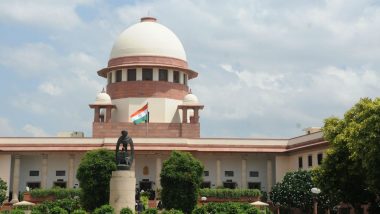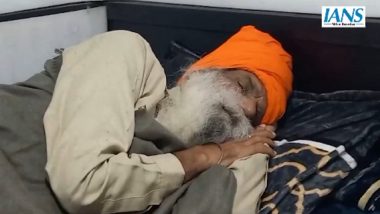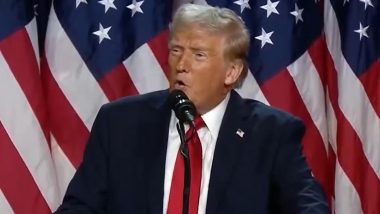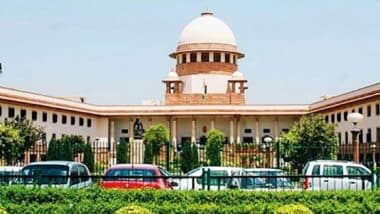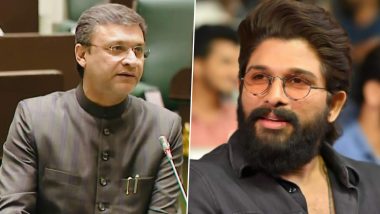New Delhi, December 16: The Supreme Court Monday said it will hear, on Wednesday, the clutch of pleas challenging the constitutional validity of the Citizenship Amendment Act (CAA). Over a dozen pleas have been filed in the apex court which include pleas by Congress leader Jairam Ramesh, Tripura's erstwhile ruling family scion Pradyot Kishore Deb Barman, Trinamool Congress MP Mahua Moitra, All India Majlis-e-Ittehadul Muslimeen (AIMIM) leader Asaduddin Owaisi and others.
A bench of Chief Justice S.A. Bobde and comprising Justices B.R. Gavai and Surya Kant said the pleas will be heard along with other pending matters on Wednesday. Senior advocate Abhishek Manu Singhvi sought urgent listing of two pleas and insisted the hearing should be clubbed with a similar plea filed by the Indian Union Muslim League (IUML). He informed the bench he has filed two pleas, one by the Congress and the other by ex-Maharaja of Tripura. Citizenship Amendment Act 2019: BJP to Run Public Awareness Campaign on CAA Amid Protests.
President Ram Nath Kovind gave assent to the Citizenship (Amendment) Bill, 2019 on Thursday night, turning it into an Act. Other petitioners -- which include Peace Party, NGOs Rihai Manch and Citizens Against Hate, advocate M.L. Sharma, and law students -- have a common issue with the amended Act, which declares members of Hindu, Sikh, Buddhist, Jain, Parsi and Christian communities who have come to India from Pakistan, Bangladesh and Afghanistan till December 31, 2014 after facing religious persecution there will not be treated as illegal immigrants but given Indian citizenship.
Moitra's counsel mentioned the plea before the Chief Justice Bobde and sought urgent hearing, but it was denied. The court asked the counsel to go the mentioning officer. Her plea said that the Act is a "divisive, exclusionary and discriminatory piece of legislation that is bound to rend the secular fabric irreparably."
Ramesh claimed the Act promotes rather than checks illegal migration and is inextricably intertwined with the "bizarre concept" of a National Register of Citizens, "as it does not even attempt to address the humanitarian and logistical issues of excluding millions and is clueless as to where to house them, where to deport them and how to deal with them." He contended the Act is manifestly violative of Article 14 and 21 of the Constitution, is contrary to the law laid down by the apex court, and also violates the Assam Accord and International Covenants.
The petition by Rihai Manch and Citizens Against Hate, said that the Act violates the fundamental rights, including that of equality before the law, and basic structure of the Constitution. The plea was filed through advocate Fauzia Shakil.
The All Assam Students Union (AASU) moved the Supreme Court against the Act stating due to the continued influx of illegal immigrants in Assam, the Centre has failed to protect the rights of the state's indigenous people. It claimed the Act violates the obligations of the Centre under the United Nations Declaration on the Rights of Indigenous Peoples.
The petition claims the Act attempts to grant blanket exemptions from the provisions of law governing grant of citizenship to a certain class of foreigners in India, who have entered or staying in India without valid documents. The AASU argued that it imposes an unreasonable and unfair burden on Indian states in the absence of any budgetary allocation for the illegal migrants expected to take citizenship of India as a result of the guidelines under the Act.
On Thursday, a writ petition was filed by the IUML claiming that the Citizenship (Amendment) Bill (CAB) 2019, passed by the Parliament on Wednesday, violates Article 14 of the Constitution.
(The above story first appeared on LatestLY on Dec 16, 2019 11:56 PM IST. For more news and updates on politics, world, sports, entertainment and lifestyle, log on to our website latestly.com).













 Quickly
Quickly








